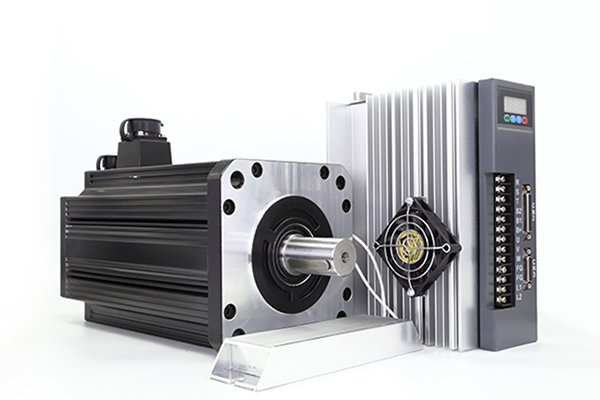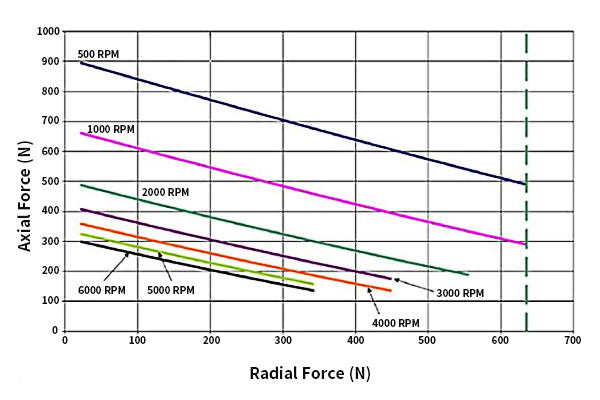What is the Zero Return Point of a Servo Motor?
The zero return point of a servo motor is a specific point at which the motor returns to its initial position during motion. The determination of the zero return point is very important for the normal operation and precise control of the servo motor. This article will introduce the significance of the zero return point, the method of determining the zero return point and the application of the zero return point.
Return-to-zero is a key concept in servo motor motion control that determines the initial position of the motor. In many applications, servo motors need to return to the initial position periodically to ensure accurate position control and motion control. By setting the zero return point, the motor can be made to return to the same starting position after each startup or repositioning for stable motion control.
Determination Method:
There are many ways to determine the return zero, and the following are several common methods.


Return to zero plays an important role in the application of servo motors, which is mainly reflected in the following aspects:
The zero return point plays an important role in servo motor control, which determines the initial position of the motor and is the basis of position control and motion control. There are various methods to determine the zero return point, which can be selected according to the actual needs and application scenarios. The application of zero return point is mainly reflected in position control, motion control and fault diagnosis. Through reasonable setting and use of the zero return point, stable motion control and precise position control can be realized, and the performance and reliability of the servo motor can be improved.
Return-to-zero is a key concept in servo motor motion control that determines the initial position of the motor. In many applications, servo motors need to return to the initial position periodically to ensure accurate position control and motion control. By setting the zero return point, the motor can be made to return to the same starting position after each startup or repositioning for stable motion control.
Determination Method:
There are many ways to determine the return zero, and the following are several common methods.

- Limit switch method. Set limit switches in the motor's range of motion, when the motor triggers the limit switches, you can determine the zero return point. This method is simple and intuitive, but it is necessary to set limit switches within the range of motor movement, and the accuracy of the limit switches will affect the accuracy of the determination of the zero point.
- Photoelectric encoder method. The position of the servo motor is monitored by installing a photoelectric encoder, and when the motor returns to the initial position, the return-to-zero point is determined by the change in the encoder's signal. This method has high accuracy and stability and is suitable for applications with high positional requirements.
- Software calibration method. Through software control and calculation, the zero return point is determined according to the motor's motion characteristics and motion state. This method is more flexible and can be adjusted according to the actual situation, but it requires a certain understanding of the motor's motion characteristics and the ability to analyze.

Return to zero plays an important role in the application of servo motors, which is mainly reflected in the following aspects:
- Position control. The zero return point determines the initial position of the motor and is the basis of position control. By setting the zero return point, accurate positioning and position control of the motor can be realized to meet the needs of different applications.
- Motion control. The determination of the zero return point can help the motor realize stable motion control. In the process of motor movement, the zero return point can be detected to determine whether the motor is working properly and whether the movement is accurate.
- Fault diagnosis. The setting of the zero return point can be used for fault diagnosis. When the motor fails to return to the preset zero return point, it may indicate that there is a fault or abnormal condition in the servo motor, which can be monitored and analyzed to carry out troubleshooting and diagnosis.
Post a Comment:
You may also like:

Category
Featured Articles
Troubleshooting of Servo Motor
 Servo motors play a crucial role in various industrial applications, providing precision control and efficient performance. ...
Servo motors play a crucial role in various industrial applications, providing precision control and efficient performance. ...
 Servo motors play a crucial role in various industrial applications, providing precision control and efficient performance. ...
Servo motors play a crucial role in various industrial applications, providing precision control and efficient performance. ...Safety Precaution For Using Servo Motor
 In the realm of industrial automation, servo motors play a crucial role in achieving precision and control. These devices are ...
In the realm of industrial automation, servo motors play a crucial role in achieving precision and control. These devices are ...
 In the realm of industrial automation, servo motors play a crucial role in achieving precision and control. These devices are ...
In the realm of industrial automation, servo motors play a crucial role in achieving precision and control. These devices are ...Why Use Servo Motor as Test Load?
 Dynamometer is mainly divided into two parts: cabinet and frame, while the frame mainly has the motor under test, torque speed ...
Dynamometer is mainly divided into two parts: cabinet and frame, while the frame mainly has the motor under test, torque speed ...
 Dynamometer is mainly divided into two parts: cabinet and frame, while the frame mainly has the motor under test, torque speed ...
Dynamometer is mainly divided into two parts: cabinet and frame, while the frame mainly has the motor under test, torque speed ...Difference Between Servo and Stepper ...
 Servo motor and stepper motor are almost used in all automated industries where high precision is to be achieved. Though servo ...
Servo motor and stepper motor are almost used in all automated industries where high precision is to be achieved. Though servo ...
 Servo motor and stepper motor are almost used in all automated industries where high precision is to be achieved. Though servo ...
Servo motor and stepper motor are almost used in all automated industries where high precision is to be achieved. Though servo ...